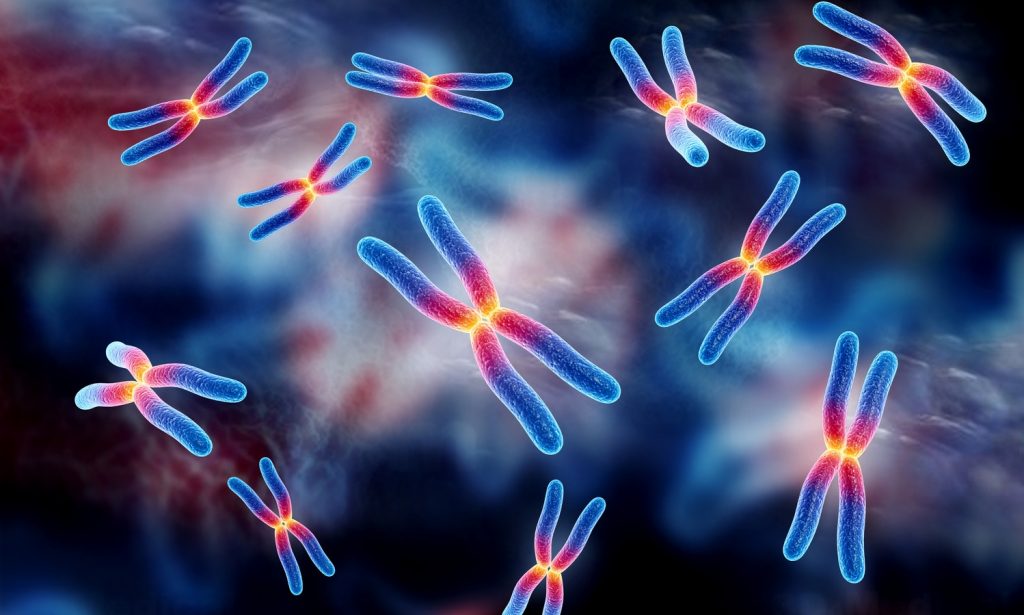Molecular Genetic Testing: Prominence and Facilities in Nepal


With the recent advancement in academics, the number of students from Nepal are attracted in the field of Human Genetics/Molecular Genetics. There are numerous senior molecular genetics scientist from Nepal, residing in foreign countries and providing their technical expertise in the research as well as diagnostic sectors. However, these days many young scientists moved back to Nepal with the aim to establish the molecular genetic testing center and to provide services in Nepal. Hats off to those young molecular scientists. But we all know that there is the lack of genetic knowledge in the Nepalese where only less than 20% of people (including doctors) are aware of genetics and their clinical implication in health. Many developed nations and even our neighbouring countries (China and India) have already crossed almost a century in the field of genetic diagnosis of diseases for prevention, prognosis, care and management of patients as well as moving forth with advanced in the technology, providing better and quality services to the patients but we are way more lacking behind. Now Is The Time To Initiate.
Genetics in Medicine
The analysis of human DNA, RNA, chromosomes, proteins, and certain metabolites in order to detect heritable disease-related genotypes, mutations, phenotypes, or karyotype analysis for clinical purposes. Such purposes include predicting the risk of disease, identifying carriers, establishing the prenatal and clinical diagnosis or prognosis. Prenatal screening, newborn, and carrier screening, as well as testing in high-risk families, are included in routine genetic testing these days. Looking at DNA, RNA, chromosomes and protein level is printed into genetics knowledge. The DNA and RNA are the hereditary molecules which code for normal functioning of body traits in the human. Proteins are the product for those molecules which is responsible for the biological function in human as well as other living beings. Any alteration in those molecules can lead to various disorders in human. Not only human gene is responsible, but DNA/RNA molecules from bacteria, virus, and fungus also lead to several diseases in human-like tuberculosis, leprosy, HIV, Hep B, Hep C etc. as major infectious diseases in human. Thus, the diagnosis of human genetic disorders and infectious diseases are of major importance in today's clinical setup and/or hospitals.
A genetic professional/genetic counselor can explain in detail the benefits, risks, and limitations of a particular test. It is important that any person who is considering genetic testing, understand and weigh these factors before making a decision. They also help patients to understand the chromosomal abnormality diagnosed by cytogenetics analysis and to provide further information on conditions. The world is leading because of molecular genetic research where they can treat human, damage human and modify human as per their need. Unlike many diagnostic tools available in today’s medicine, medical/human genetics play a major role in the diagnosis of the genetic disorders, infectious diseases, and forensic testing. It plays a significant role in genetic diagnosis, risk assessment, monitoring therapy and patient management in modern health care system.
Genetic testing can be implicated either in DNA, RNA or Chromosome level. It has several disciplines such as molecular diagnosis of infectious diseases (tuberculosis, leprosy, HIV, Hep A, Hep B, Hep C), screening of new-born (metabolic disorders like phenylketonuria), diagnostic testing [chromosomal abnormalities (Down’s syndrome, Turner Syndrome and Klinefelter syndrome etc.), male infertility (Y chromosome Microdeletions) and cancer (leukemia)], carrier testing (DMD, Thalassemia, Fragile X), prenatal testing (Down’s syndrome, Edward Syndrome, Patau Syndrome, Turner Syndrome and Klinefelter syndrome etc.), postnatal (Di-George Syndrome, Angel man syndrome, Prader-Willi syndrome, Cri-du-chat syndrome etc.), preimplantation genetic testing (abnormalities in the embryo), predictive and presymptomatic testing and forensic testing (paternity testing and to identify crime suspect)
Consultant Geneticist and Genetic Facilities in Nepal
With the context of Nepal, we don’t have a consultant genetic physician who can clearly identify the genetic disorders and suggest for the specific genetic test. Even there is no specific course curriculum of clinical genetics for MBBS students. As a Molecular Geneticist, I made several approaches in well-reputed medical and teaching hospital for incorporation of course curriculum in MBBS and is under process. Our consultant surgeons in Nepal already started the kidney and bone marrow transplant, but we are lacking for molecular typing of HLA (Human Leukocyte Antigen); the most needed test before transplant. Also, after bone marrow transplant it's success is monitored by FISH (Fluorescence In-Situ Hybridization) analysis but we neither have an expert manpower nor tools to perform FISH. In addition, more than 70% of mental retardation cases in Nepal are associated with gene defect. Several other genetic disorders common in Nepal are thalassemia, DMD, male infertility, bad obstetric history (frequent pregnancy loss), blood disorders (leukemia) etc.
Potential Benefits and Disadvantages
There are several benefits of genetic testing broadly classified as 1) Research testing that involves discovering novel genes and their roles, linking genetic mutations to specific clinical disorders and exploring the molecular mechanism of diseases, and 2) Clinical testing that provides patients and families the inherited risk, diagnostic significance, and information on specific genetic conditions so that they are able to make well-informed decisions about their future. The several advantages of genetic testing such as; negative test results provide relief and peace of mind while positive results allow people to make an informed decision about conditions, informed choice about their future of having children, a screening test to identify condition at early stages, allow treatment plan where possible and gives an idea of prognosis. Numerous disadvantages of testing such as; positive test results leading to anxiety and having guilty for having potentially passed an abnormal gene to their children, while negative test results affect family relations, they may feel guilty at having escaped the risk of cancer while their sibling is still at risk.
Risk and Limitations of Genetic Testing
The risk associated with genetic testing are less compared to other like 1) physical risk: very small risk for collecting blood sample and buccal smear but real risk of losing pregnancy for prenatal testing (collection of amniotic fluid and tissue from around fetus) 2) psychological risk such as emotional, social, or financial consequences, depression, anxious, or guilty about their results creates tension within a family. Genetic testing provides limited information on inherited disorders, can’t determine whether persons will be symptomatic or not, the severity of symptoms and progressive nature of disorders over time. In addition, there is lack of proper treatment strategies for many genetic conditions once diagnosed.
Ethical, Legal and Social Issues (ELSI).
Healthcare professionals should be aware of ELSI to protect patients from additional distress. Clinical molecular geneticist or genetic specialist may be better able to address patient concern and question regarding these issues. The ELSI issues related to genetic testing are; communicating critical test results, cautions about the direct marketing to the consumers about tests, harm of disclosing test results, genetic discrimination, informed consent, privacy, psychological impact, reproductive issues, social values, test utility and test validity.
Molecular Genetic Testing Centres in Nepal
Below mentioned are the few genetic and molecular diagnostic centers are established in Nepal with the aim to provide quality and cheap genetic diagnostic services.
Private Research Centre
Intrepid Nepal Pvt. Ltd, Thapathali, Kathmandu, Nepal
Testing: Viral Load Testing, Molecular diagnosis of Pathogens etc.
Further details; Link: http://www.intrepidnepal.com/diagnostics.php?id=dia
Kathmandu Center for Genomics and Research Laboratory, Gwarko, Nepal.
Testing: Karyotype, Molecular diagnosis of HIV-1, Hep B, Hep C, Carrier detection etc. Further details; Link: http://www.kathmandugenomics.com/services.html
Decode Genomics and Research Center, Sinamangal, Kathmandu, Nepal
Testing: Viral Load Testing, Human Genetic Diagnostics, Mutation analysis etc.
Further details; Link: http://www.dgrc.com.np/test-list-2/
Government Hospital/ Reference lab
National Forensic Science laboratory, Satdobato, Nepal
Testing: Paternity Testing, Identify Crime Suspect etc.
Further details; Link: http://forensic.gov.np/
B.P. Koirala Memorial Cancer Hospital, Bharatpur, Chitwan, Nepal.
Testing: Cancer Cytogenetics
Further details; Link: http://www.bpkmch.org.np/department-pathology
National Public Health Laboratory, Teku, Kathmandu, Nepal
Testing: HIV and Hepatitis C viral load testing etc.
Further details; Link: http://www.nphl.gov.np/index.php?obj=content&id=208
Bir Hospital, Mahaboudha, Kathmandu, Nepal. (New Setup)
Testing: Hepatitis B Viral Load Testing, Karyotype, FISH etc.
Further details; Link: http://nams.org.np/#
(Writer is Doctoral Researcher -Tzu Chi University, Hualien, Taiwan)

 Rupendra Shrestha
Rupendra Shrestha




Feedback